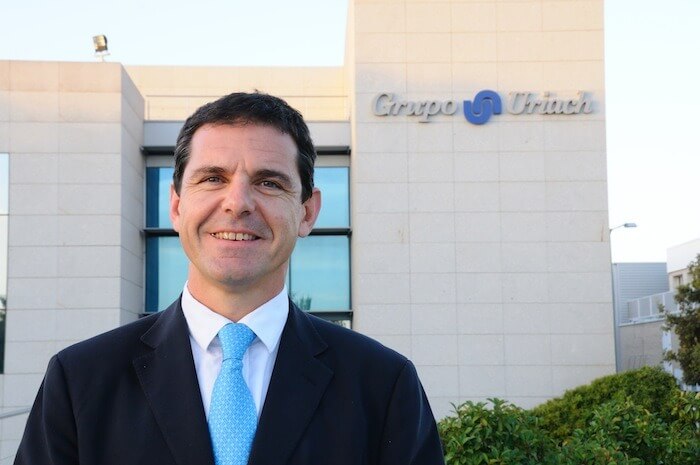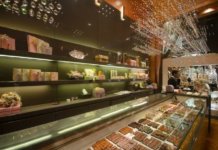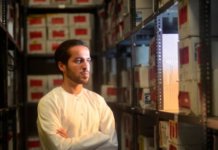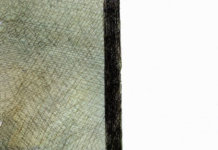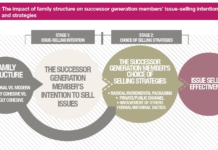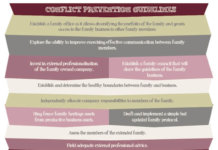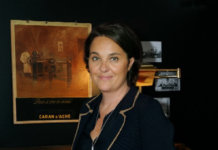A Conversation with Joaquin Uriach Torello, President of Uriach, Spain
175 years ago, Juan Uriach Feliu became the shop assistant at a drug store in Barcelona. It is unlikely he was aware that his own efforts would allow for the beginnings of an enterprise that would benefit the six following generations of his family and is likely to do the same for generations more to come. One of the largest pharmaceutical companies in Spain, the Uriach family business has been through both World Wars and drastic economic changes. In recent years the most essential adjustments to Uriach have been brought about by the family itself, according to 5th generation member and president of the family business Joaquin Uriach Torello, who spoke exclusively with Tharawat magazine.
Joaquin Uriach’s knowledge is time honoured as he started working for his family’s business earlier than most can claim, posing for a Uriach product print advertisement at the tender age of three. While he smilingly assures us that his modelling days ended just as they began, Uriach has continued to represent the company though now in a much larger capacity. In the following interview, Joaquin Uriach details just how the application of remarkable foresight and sacrifice have kept the family on the road to nearly two centuries.
[ms-protect-content id=”4069, 4129″]
How did your involvement with the family business begin?
I believe you are born into a family business. I don’t remember a day without my father telling us about what was going on at the office and how he would solve the problems he was confronted with. We were always part of it. I am the youngest of six siblings: four brothers and two sisters. After having spent years at a Jesuit school, which taught me honesty and human values, I studied law in Barcelona.
I started working as a criminal lawyer. Five years later, my father asked me to join the family company. The family business had always been part of my life so it felt natural. I joined my father and my brothers in the business. I started out as the lawyer of the family business. Later I became the general manager of R&D and HR. The experience in the R&D department was very interesting as it entailed including scientific minds into the vision of the business. My function was to make our scientists realise how their research could translate into a commercial proposition. It was no easy task but I greatly enjoyed it.
Your family business has gone through a transformative journey over the last twenty years. The business was once led by your father single-handedly and has now turned the reigns over to a corporate structure that separates ownership from management entirely. How did this change come about and were there sacrifices along the way?
Today, we have total separation between corporate governance and management. None of the family members are involved in the day-to-day business of the company; we are the governors and owners of the business. A lot of people think that to be an owner is to collect dividends once a month. But we are active owners. First of all, we try to transmit the family culture and values to our employees. Our family business used to be very different and we certainly did not plan to end up like this; it is the result of a long process.
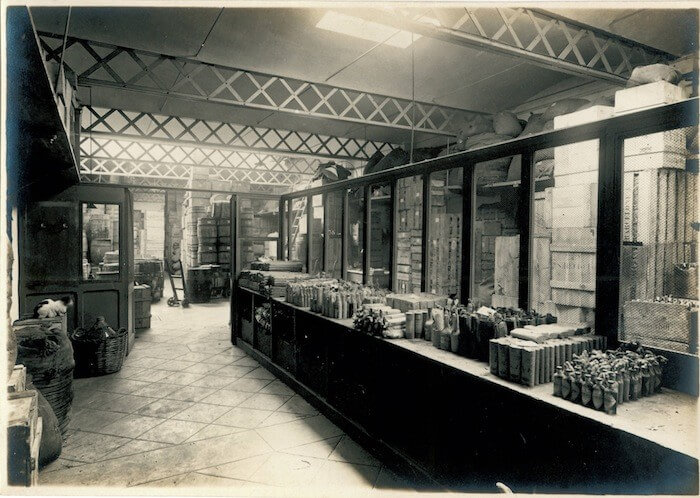
We are now a 5th generation family business. Normally, a family business our age would at least be a cousins’ consortium. What is special in our case is that my father bought out his 2nd cousins in 1986 and pruned the family tree back down to our branch of the family. One of the advantages of this is that it reduced complexity. After my father bought the extended family out, my brothers and I were the 5th generation coming in but it felt more as if we were the 2nd generation taking over from the founder.
My father, when he became the sole owner, had the great insight to create an advisory board. He knew that it was not enough to be a keen businessman but that he needed others to confront his ideas. He called in three friends and established an advisory board, which started introducing changes in the company.
My father also felt that all changes had to be considered with his children and after five years he felt that more important roles should be given to my brothers and myself: He made us general managers of the industrial, the commercial, the international and the R&D department respectively.
When we started working together as brothers, we realised that we needed to have rules between us. And this is why we started a protocol process with a consultant. This produced healthy norms and rules. It really enhanced our communication. We started to talk openly one brother to another. You think you know your brothers or your sisters, but you don’t really. To know them, know what they want for themselves and the company, creating a tool for communication and listening to each other is crucial. Everything was put on paper and it helped us create a good environment for everyone.
It also led to another great change: Our discussions brought forward that none us felt it right that neither of our sisters were shareholders. This fact stems from our culture, which does not consider women as possible shareholders of the business. This is changing now. Men used to get the business and women used to get real estate. We all found that this was not right and that we wanted our sisters to be part of the company. My father was easy to convince and he did not want to leave it to us to bring this change about but rather went to work on it himself. One of my sisters, my other sister is unfortunately prevented by illness, joined us as an owner. She does not have a business background but we are helping her understand her role.
Following these important steps we restructured our departments into two business units: pharmacy and diverse activities. We chose two brothers to lead each of these units. We also decided to change from an advisory board to creating a board of directors with the family members and three external non-family directors. We wanted to have a real governing body that would carry weight in decision-making.
Soon, we felt that we did not want to have two people in charge anymore and instead chose one of the brothers as the general manager of the whole company. He was also made president of the board. Then, finally, in 2005 we decided that the CEO position should be retained by a non-family member and we separated ownership from management entirely.
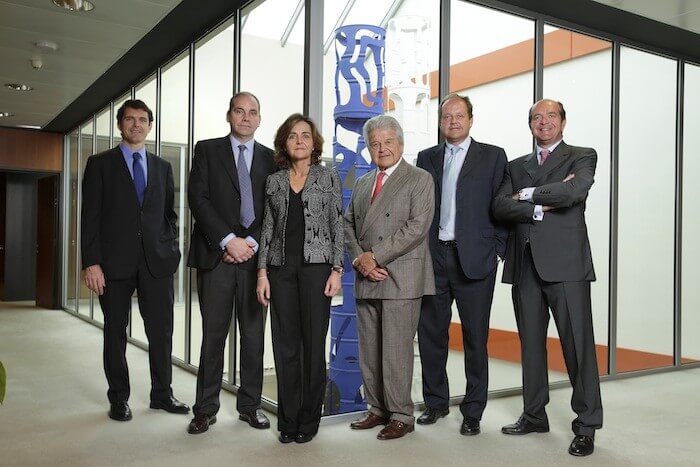
How did your family cope emotionally with all of these changes?
This last change wasn’t easy, but my brothers all accepted it. You always have to think of what is best for the company. This can only happen if you communicate openly and do not harbour secret agendas. I think morals play a very important role. Morals and values become even more important when you are preserving a legacy of 175 years. You have to learn that you cannot always hold on to a specific plan and that you have to adapt. If someone had told us in 1986 that this would end up being our structure and that we would have a non-family member as CEO we would have certainly laughed. But if you keep talking about things openly you are aware of change and can grasp opportunities that are best for the business.
Where does this structure leave the next generation?
Our norms and values have worked for this generation. I really hope that the next generation will be able to arrange things between them. We are trying to train them as owners to make sure they are creative together. If one of them is clever enough and competent to take over a managing position then why not? We will see what will happen in the future. I am trying to involve my children in the business by talking about it at home. In fact the eldest of the 6th generation, my sister’s son, already belongs to the family council.
What do you consider central to the continued success of your family business?
Adaptation is very important for family businesses in general. Each family business has to change to suit itself and its needs. It is a matter of having the right mind set.
Regarding what is to come for our company I would like to say that I attribute much of the company’s achievements, past and future, to my mother. She is the hidden force behind the family business. My father made wonderful things happen in the company but I attribute it to my mother that we as siblings have been able to communicate so successfully. That coupled with my father’s generosity in making us owners sooner rather than later, brought a strong sense of responsibility and emotional attachment about in our generation. He trusted us and that was the most important ingredient to our present and future success.
Tharawat Magazine, Issue 21, 2014
[/ms-protect-content]


